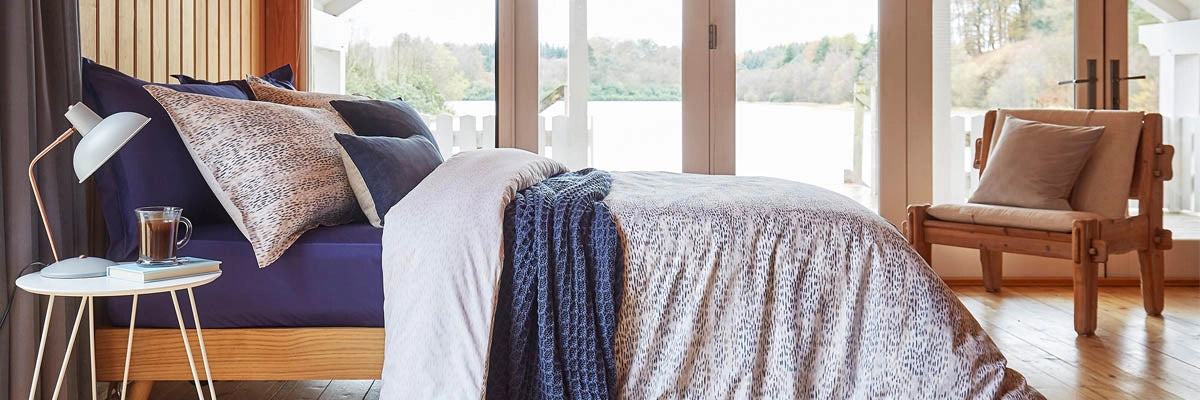Understanding Fibre Types

The vast wealth of fibre terminology used by bed linen and towel manufacturers can sometimes be a little overwhelming. The Christy fibre types glossary allows you to make sense of your bed linen and towels, and make an informed purchase.
Thread Counts
Thread count is a measure of the quality of the fabric and refers to the number of threads used per square inch of fabric. Percale fabrics have a thread count of 180 or more, which results in finer bed linen.
Cotton
There are a variety of different cotton plants each of which have their own traditional growing areas. The climate and growing conditions in these areas produce cotton with different characteristics. The most important of these characteristics is the length and fineness of the individual fibres, the longer and finer it is, the softer, smoother and more lustrous the yarn will be.
Cotton Percale
This is made from high quality cotton with a thread count of 180 or more. Percale bed linen looks matte and feels smooth to touch. Percale launders beautifully, is long lasting and durable.
Cotton Sateen
Cotton Sateen is generally made from a combed cotton thread, which is woven in a different way, to produce bed linen with a sophisticated sheen that feels luxuriously soft and smooth against the skin. As well as having a lovely handle and drape, cotton sateen bed linen is easier to iron than cotton percale.
Easy Care Cotton Percale
Easy care is a finish added to cotton percale. This finish makes fabrics easier to launder and require less ironing. Easy care finishes do gradually wash out over time.
Egyptian Cotton
Egyptian cotton, known the world over for its superior quality, is grown only in specific areas of the Nile delta where it has been cultivated for centuries for its superior quality.
Blends
In some bed linen, there are blends of two fibres, for example cotton and linen. The combination of fibre types adds individual properties to the bed linen. Specific features within these blends include slubs in linen and silk which are natural characteristics of these fibres and add to the beauty of these products.
GSM
GSM stands for "grams per square metre". It is the way weight is measured in a towel. The higher the GSM the higher the thickness of the towel. A higher GSM is associated with a more luxury towel. However if you were looking to purchase a towel for a busy household, where quick drying time is a priority, you may look for a lower GSM which results in a quicker drying time. Christy towel ranges that have a lower GSM are designed to give the same soft feel as a high GSM towel but without the weight to increase the performance of the towel.
Hygrocotton®
Hygrocotton® refers to Welspun's sophisticated spinning process, which creates a unique, loftier soft fabric. The loftiness comes from the entrapped air, which gives added insulation creating a warm fabric to touch, ideal for wrapping around your body on a cold winters night or a cooling effect on a hot summers day. Long staple fibres, such as Egyptian or Pima cottons, spun by this process, has the added dimension of smoothness and luster creating a truly amazing fabric which we manufacture into the towels you know.
Pima Cotton
Pima cotton is an extra long staple cotton that is soft and absorbent and produces a soft fabric with similar properties to Egyptian Cotton. Pima cotton is technically slightly better than Egyptian Cotton but in practise the difference is small and the fabric choice often comes down to your own personal preference based on experience.
Silk
Natural variations and slubs are unique characteristics of all types of silk fabric. Do not expose to direct sunlight. Colour variations may occur.
Supima Cotton
Supima cotton produces one of the finest cotton yarns in the world with its extra long fibres giving a luxurious, silky handle. Supima cotton is a brand of cotton that is regulated by Cotton USA ensuring a consistently high quality finish.

